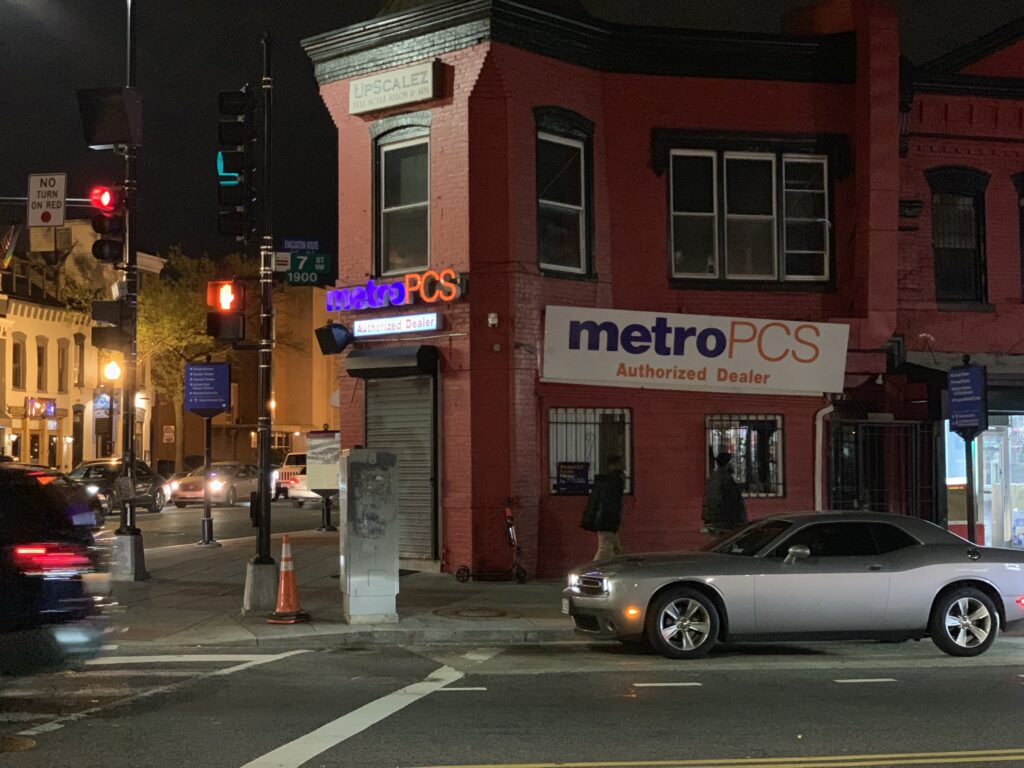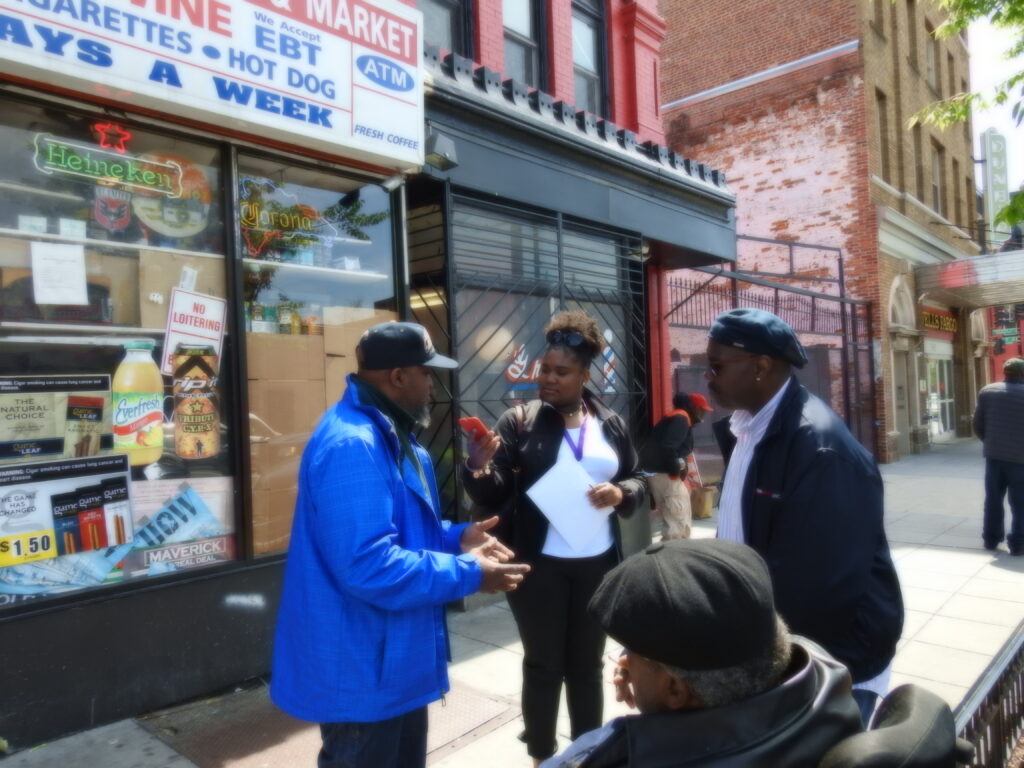By Aminah Cole | Senior, Bishop McNamara High School, Forestville, MD | Winter/Spring 2019

Chocolate City is melting at the center of its core in the historic Shaw neighborhood, a community where African-Americans lived, celebrated and learned for the past 19 centuries. In early April, a Metro PCS store, located on the corner of Florida Ave. and 7th St. N.W., known for playing go-go music from its outdoor speakers, was involved in a dispute with noise complaints from some residents of The Shay, a luxury apartment building less than 500 feet away.
Residents of The Shay called the music a “nuisance” and that they needed to turn the music down. After the first dispute, the Shay residents contacted the parent company T-Mobile who forced the Metro PCS owner to turn down the music.
Once word spread regarding the silenced corner of the neighborhood, Howard University student, Julien Broomfield created the hashtag, #DONTMUTEDC. The hashtag received a lot of attention and trended locally on twitter. Today, the hashtag is the slogan of a campaign that is fighting to keep the cultural sanctity of D.C.
After complaints swelled from the community, T-Mobile CEO, John Legere, allowed Metro PCS to resume playing the music. “We’re trying to make this a landmark, “ said Mike Johnson Johnson, an employee of Metro PCS, speaking about the efforts being made to protect the location and the permission to play go-go music outside of the store.

Recent reports from the NCRC (National Community Reinvestment Coalition), “Washington, D.C was named the most gentrified city by percentage of eligible neighborhoods that experienced gentrification.” D.C. natives have expressed concerns, citing a received political agenda move to rid the District of Columbia of African-American residents. Gentrification is a common process in many urban areas, but for the Shaw neighborhood residents, the changes present a cruel irony in a space that is registered as a historical African-American landmark. “Without the original culture aspects, D.C. wouldn’t be the same,” Magbie said. “The music represents our heritage…It’s who we are.”
Council Woman of Ward 1, Brianne Nadeau tweeted on April 8: “Go-go is a blend of funk, hip hop, Latin, and other genres that emerged in the 60s and 70s. It is a unique product of D.C. and its Black residents. To this day, it is the indisputable sound of DC and its suburbs.” This demonstrations of support from native, long-term residents, non-natives, and people in far-reaching suburbs has continued via #DONTMUTEDC — popup rallies have occurred in the Shaw neighborhood and U Street corridor over the spring playing go-go for all to hear — the sound of a city in the middle of re-molding.
Representatives from The Shay’s management could not be reached for comment.


